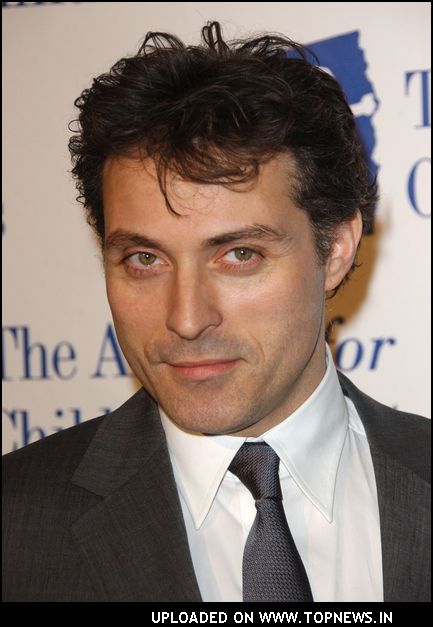Interview: Rufus Sewell of ‘Downloading Nancy’
Posted on June 4, 2009 at 3:58 pm
In “Downloading Nancy,” British actor Rufus Sewell plays the husband of a troubled woman (Maria Bello) who develops a tragic relationship with a man she met online (Jason Patric). Sewell often appears as smoldering, brooding characters and is perhaps most widely known in the U.S. for being the guy who treated Kate Winslet so badly in “The Holiday.”
If I were the casting director for this film, I think I might have asked you to play the other leading male role, the one played by Jason Patric.
And I’d have turned you down! I consider it’s my job to find what casting directors wouldn’t think of me for. People tend to think of me for the same thing but I’m not a type and it would be the wrong kind of type-casting based on parts I’ve played before. That is something I’m just bored with, but it is only in films that would make it across the pond. Here I’ve played a very wide range of characters and feeling comfortable doing so. The character in this film is very far away from what people consider me to be like. In many ways all of the characters are hard to get into the perspective of. People might not like him or empathize with him, but I could relate to him and feel sorry for his predicament.
Do you have to be able to have that kind of empathy with your character?
I could even say I didn’t like him but you absolutely need to be able to see through their eyes. You might think he’s making the wrong judgment, but he was not equipped to deal with the situation.
The reason I didn’t feel he was a bad guy is that all of the characters are damaged. The way I could see myself as him is someone who is in a situation with someone who is in a lot of pain. This is his only way to respond because he is ill-equipped. He is blaming himself. He may not be able to express his guilt but you can see how he feels. Everyone has the same store of feelings, they either get caught up inside or come out.
How do you introduce the character in a way that makes the audience forget their past associations with you?
I don’t worry about playing to a particular audience. Some people don’t want to see you a particular way but my responsibility is to myself and the work that I do. It is not any easier to play a good guy than a bad guy. And the only power I have is what work I don’t do. That keeps me from playing the same thing over and over again.
There are ways that this film is very of the moment because of the way the wife meets the other man online but the themes of failure of connection and communication are eternal.
That’s true enough of relationships with people in the same house.
What makes you laugh?
Pretty much everything. I laugh a lot! I find it funny when people think of me as brooding. If there’s one thing I’d like to get a chance to do, it’s comedy.
What is your training and how is it reflected in your process for creating a character?
I went to the Central School of Speech and Drama in London. It is a theater training school, but all drama schools are based in theater, basically it’s acting one way or another. I was there for three years. Coming from my background, artistic but not well-to- do, I had not met any actors. I didn’t know how to go about the business of becoming an actor. I was very, very interested in Stanislavsky and the Method and had read up on my own. I was always very interested in actors like Brando and Montgomery Clift and character actors like Charles Laughton, Anthony Hopkins. It was a far more practical training about getting up and doing it, being loud enough and physically free enough. I have always been very much into accents, too. I am musical and have a good ear, so always loved and had an ability to do accents. I found quite freeing, quite liberating, it concentrates all your tension in one area. When youre given a limitation, your imagination can fly.

